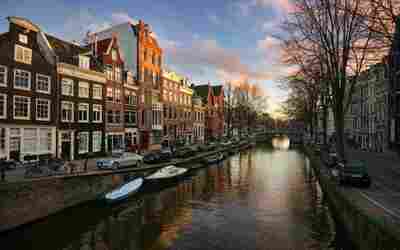Last week, on February 16th, 2023, the Prime Minister of Portugal, António Costa, announced the government’s plans to end its Golden Visa program. The decision is supposed to come into force after being approved by parliament and signed by the president. There is no information if a transition period will be applied.
This news brought a bit of panic to the investor community, raising many questions. One urgent question is if there is still a possibility to apply for a visa before the new law is signed and officially published. Ilana van Huyssteen-Meyer, a Migronis expert on Golden Visa programs, discussed the most pressing questions with Portuguese legal experts, and here is what we know for now.
What is going to happen now in terms of the legal procedures?
After the government’s announcement, the 30-day discussion period is in session. During this time, the government will discuss the details of the law with the stakeholders and different market players. After that, they will present the detailed draft to the parliament for approval. It is already a sure thing that the parliament will approve the changes to the law, but it is still unclear under what terms exactly. Once parliament approves, it will be sent to the president for ratification. The president can ratify the new law, either send it back to the parliament for future discussion or send it to the Constitutional Court for additional checking. Experts suggest the latter will happen, as some of the already announced details seem to conflict with the Constitutional law.
Is it still possible to apply for the Portuguese Golden Visa before the decision is signed and officially published?
The SEF system is currently open and still accepting Golden Visa applications from candidates. A valid law is still in force, as a Portuguese law principle does not allow for retroactive changes. In other words, investors who already have all their documents ready can still apply for the Golden Visa under the current rules.
How long will this option be available?
Legal experts advise their clients to make their investments and submit their applications into the system as soon as possible, as the Ministry Council meets again on the 16th of March. If by then, parliament grants the council legislative rights to change the immigration law (or if parliament takes direct action), such changes may enter into force immediately after the president ratifies the changes and they are published. It is unknown if authorities will use the same method they did before, granting a 6-month delay between the moment of publication and the moment the changes enter into force. Due to the legislative process, there is a guaranteed 45-day safe period, but it’s unpredictable if there will be more time.
If you have the necessary funds and documentation ready, you should proceed with the investment immediately.
Book free consultation with Migronis expert on Golden Visa programs Ilana: here
Will current Golden Visa holders be able to renew it?
In his speech, Prime Minister, António Costa, said that those with a Golden Visa could renew it if they or their children use the property they invested in as their own primary home. Another option to qualify for the renewal is to rent out the property.
Those granted Golden Visas for causes unrelated to real estate investment will be able to renew their residence permit on the appropriate grounds outside the Golden Visa program. For example, if you invested in cultural projects, it will be possible to renew your residence permit on the grounds of cultural patronage.
However, there are a lot of details to consider, and we can expect that these rules will be adjusted and clarified before the changes to the law come into force. We can expect more information on this matter on the 16th of March.
What to do with the real estate you already invested in if you don’t live there and don’t rent it out?
You will have to rent it out. If the government passes the new law, as stated in the PM’s statement, there will be no choice. However, some lawyers are saying that forcing investors to rent their property out after the fact is unconstitutional.
What other visas can wealthy investors use after the government scraps the Golden Visa?
The three remaining options will be D7, the Digital Nomad visa, and the visa for Highly Qualified Professionals and Entrepreneurs (also known as HQA).
What are the key differences between these visas?
The main difference is in the source of income.
The D7 visa is for those who earn a passive income from abroad. That passive income can be rent, dividends, pensions, or otherwise. After getting a residence permit, those same people can also earn an active income in Portugal.
The digital nomad visa targets those who earn active income from employment or a contract abroad.
HQA is for existing successful entrepreneurs wanting to start a business in Portugal. It allows entrepreneurs to get a Portugal residence permit, create their own startup, and fulfill their own economic and innovative potential under the patronage of a business incubator.
Read also: New Portuguese Digital Nomad Visa, an ultimate guide
Will the Portuguese real estate and funds market continue to offer returns on investment outside the Golden Visa program?
Yes. In general, Portugal offers investors good returns on their investments. Golden Visa investments only comprise a small part of the market, about 5%. But other investments provide excellent returns as businesses in Portugal are developing rapidly, especially if we look at areas that have not developed for some time and are now at the peak of their development, like the Azores.
Demand in the high-end real estate sector is still far higher than the supply. This trend continues to offer a good upside for investors regarding capital growth and potential yields.
Investments provide excellent returns as businesses in Portugal are developing rapidly, especially if we look at areas that have not developed for some time and are now at the peak of their development, like the Azores
Which other European countries offer residency permits through real estate investments?
Investors who would like to take the real estate investment route to obtain a residency permit in the EU can consider the investment programs in Spain(€ 500,000), Greece (€250,000), and Malta (€300,000).
Are any options left for those wanting to qualify for EU citizenship without actually living in Europe full-time?
Yes. Malta’s Individual Investor Program of the Republic (IIP) is a citizenship-by-investment program. Citizenship can be granted by a certificate of naturalization to foreign investors and their families who contributed to the country’s economy following a 12-month or 36-month residence period. The different residency terms chosen attract different contribution levels to the Malta government. For instance, a single applicant selecting a 12-month residency period must make a non-refundable contribution to the government of €750,000. In addition to making this contribution, investors must purchase a residential property in Malta for at least €700,000, which must be held for five years, or lease a residential property for at least €16,000 per annum.
We will help you to choose the program that fits you best
Use our "Call me back" button on the top of this page or contact us via one of the messagers to book free consultation with our expert: Telegram, WhatsApp.








